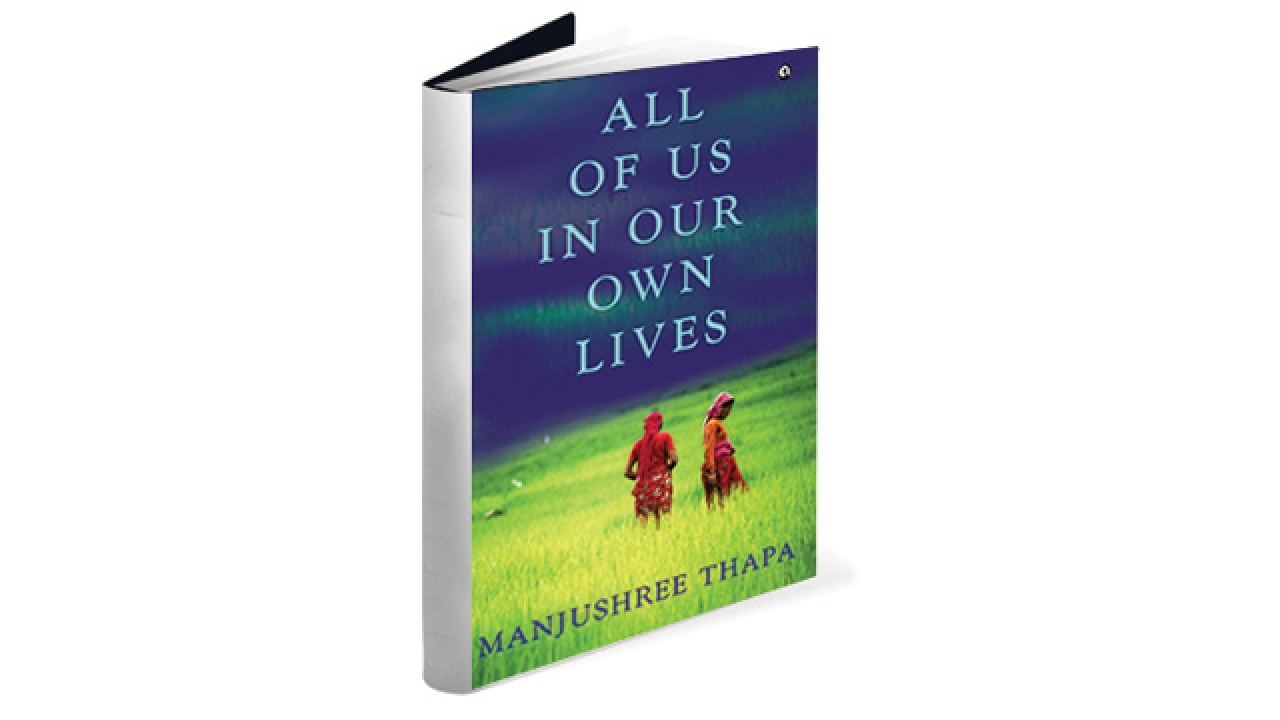
"The Development Set is bright and noble
Our thoughts are deep and our vision global;
Although we move with the better classes
Our thoughts are always with the masses."
Ross Coggins satirical and oft quoted verse written four decades ago runs like a refrain right through the reading of Manjushree Thapa's charming novel that unfolds in a Nepal of international aid, global do-gooders and changing lives.
In telling the stories of Ava Berriden, the Canadian lawyer who was adopted from an orphanage in Nepal and finds herself back in the country she was born in, Indira Sharma, the gender activist trying to cope with the machinations of the intensely competitive NGO world and also the patriarchal construct of her own home, and the brother-sister duo of Sapana and Gyanu, making an effort to make a go of their lives in the village, Thapa pens a tale that is both readable and identifiable.
It's a story of yearning and restlessness. Ava leaves Ontario, the corporate rut she was in and her marriage for a new job in the international aid organisation, International Development Assistant Forum (IDAF). "I've finally found a career I can believe in… ," she says as she heads to Nepal, which "relies heavily on aid". In Kathmandu, she runs into Indira, looking for a level of comfort at both her job and her home, where she is reduced to the status of just a daughter-in-law who can't even drink wine with guests. On a quest to get out of the confines of Kathmandu and out into the "real Nepal", Ava meets the spirited Sapana, who becomes a focal point for what women's empowerment programmes can actually do and how they help. And there's Sapana's half brother Gyanu, who comes back from Dubai after their father's death, but is unable to make the picturesque village his home again.
The characters are easy to connect with. There are also remarkable cameos that stand out in this narrative of interconnected lives that moves from Canada to Nepal, from conference venues in Europe to air-conditioned offices in Kathmandu, from the city to the villages. There's Vishwa Bista, for instance, the smarmy US educated Nepali programme staffer at international aids organisation IDAF, and the engaging Rama Bhauji, the single mother and member of the village women's committee uncomfortable with the accounting that comes with the funding.
They represent the two ends of the aid spectrum in Nepal; a world of SUVs, Mont Blanc pens and sunny offices juxtaposed against the tough reality of everyday living in the villages that is brought to life by Thapa's deft writing.
The IDAF, she says, is "hermetically sealed, as though to keep Nepal out", the staff neatly divided between the locals and the foreigners. It appears to be a perversely structured world of "deliverables, quantifiables, measurements and matrixes" and the IDAF itself is described by Tomas, another expatriate in Nepal, as a "collusion between international and national elite". When he tries to persuade Ava to move from Nepal to Myanmar and she demurs, citing the size of the annual budget for her IDAF programme, he says impatiently, "Fuck the aid industry, all it does is enrich the global elite".
It's an insider's look at the moneyed world of donors, lenders and receivers. The cynicism of life in Kathmandu contrasts nicely with Thapa's descriptives of village life. Interestingly, the author puts in the 2015 earthquake and the crisis over a constitution in the country to give the full picture of contemporary Nepal.
Issues like human trafficking are also slipped in without making too much of a big deal. In a conversation with Gyanu, Ava expresses concern over young girls going to India for work and discusses the high risk of trafficking in the area as well as the fact that more than 10,000 Nepali girls are trafficked annually.
Notwithstanding the machinations and cut and thrust of the 'alternate world of NGOs and careerist activists, All Of Us… ends with Sapana and a programme that works, that actually percolates to the community it is intended for.
The 'development set', you see, can make a difference.